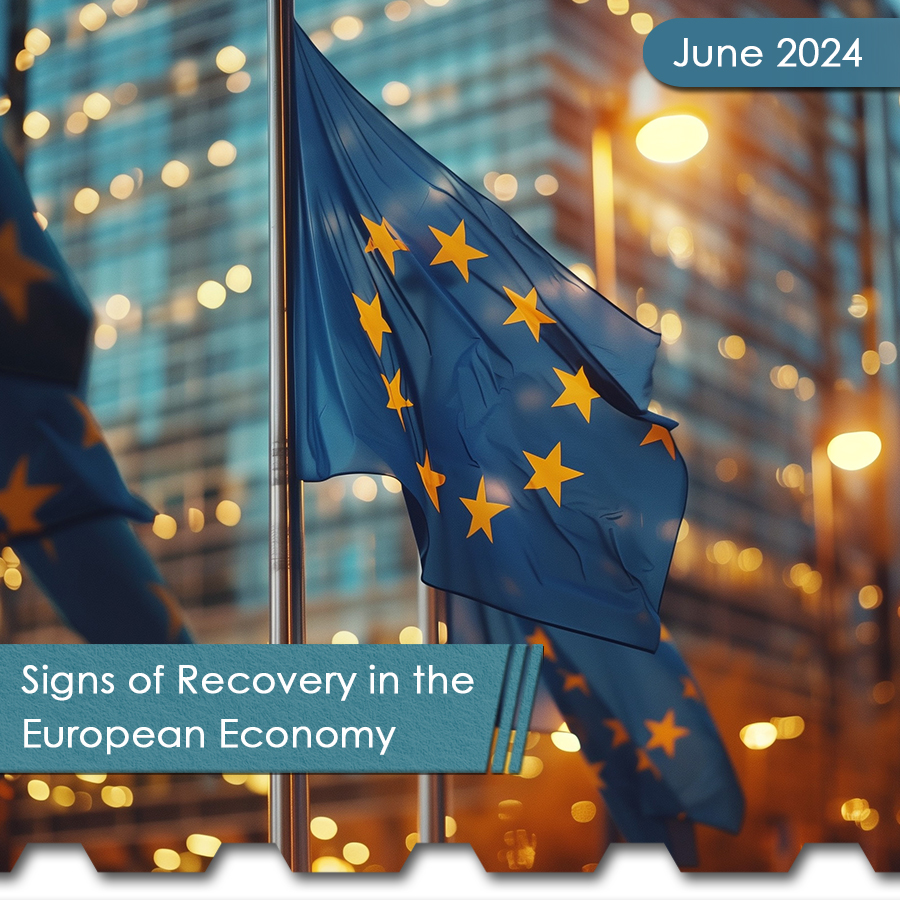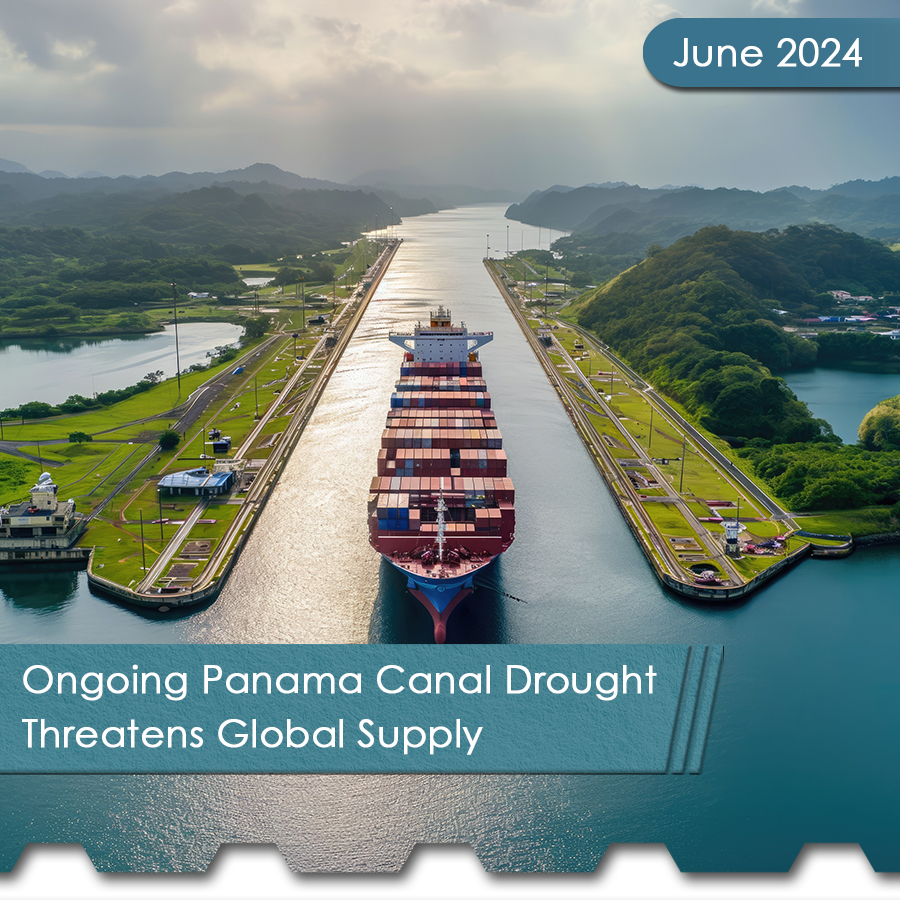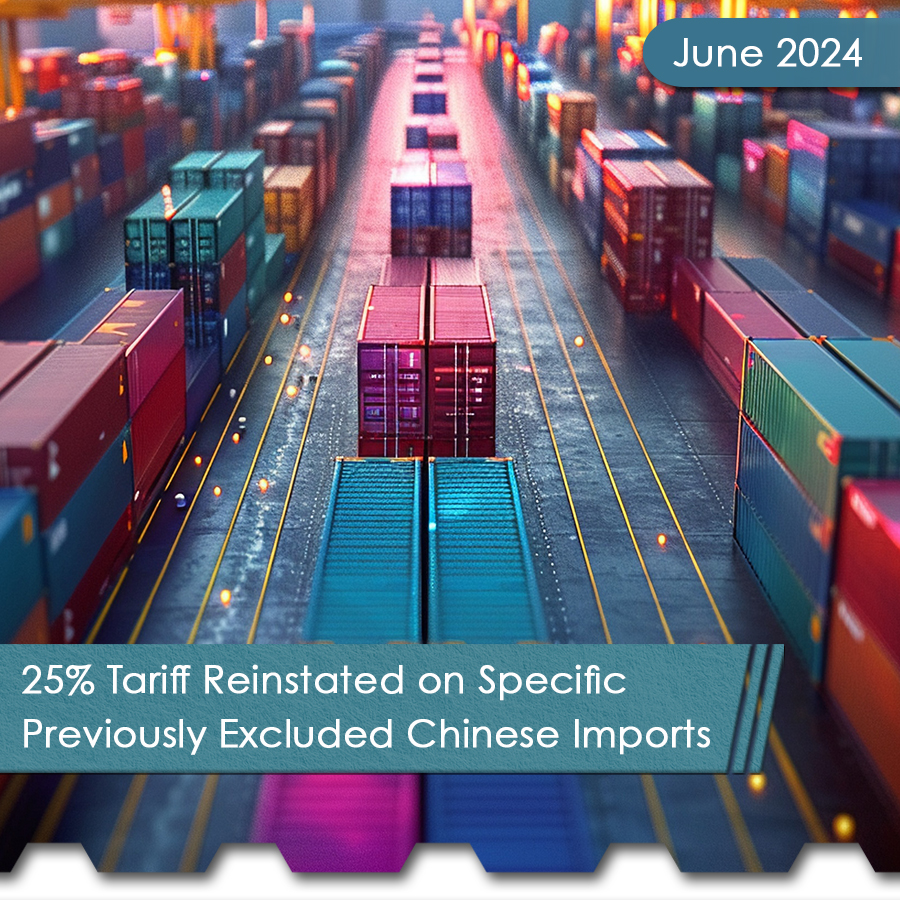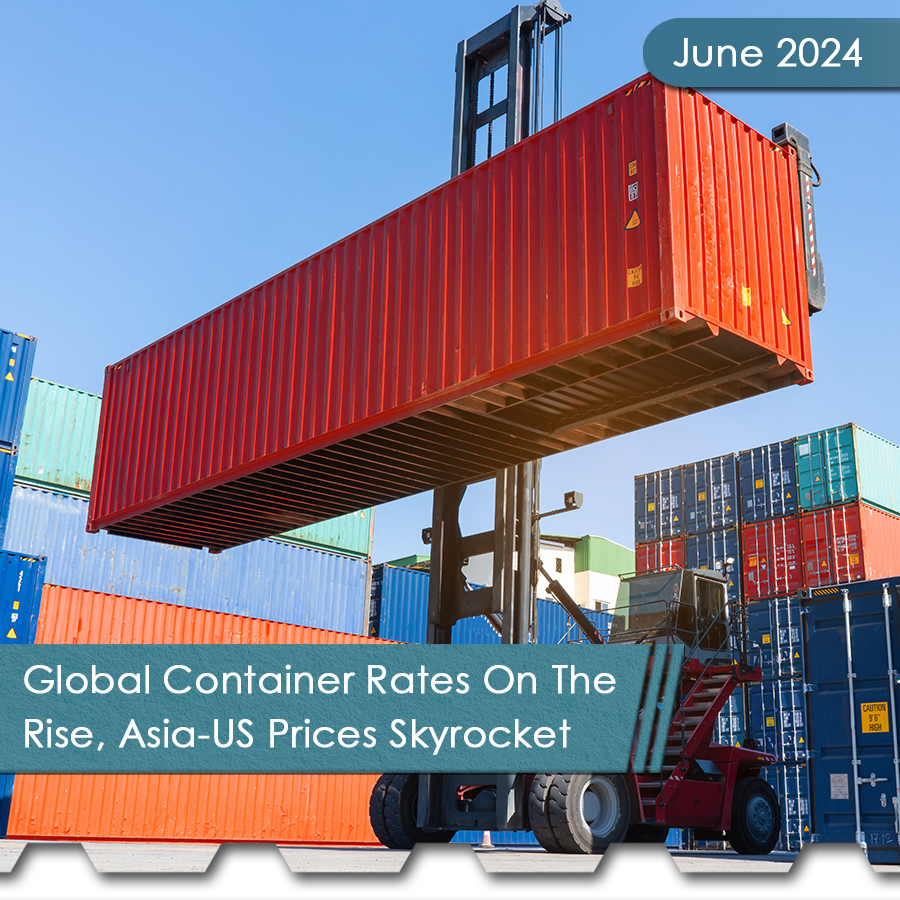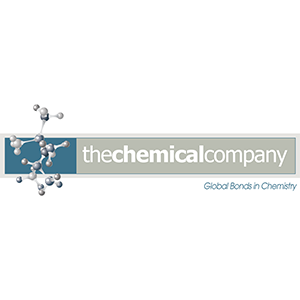Recently, The Chemical Company’s (TCC) President, Robb Roach as well as TCC’s Vice President of Business Development, Ray Altenburger were interviewed by ICIS (Independent Chemical Information Service), a business unit of Reed Business Information.
Roach and Altenburger were chosen to discuss TCC’s core business practices, industry influence and our environmentally conscious protocol.
Click here to view the official article in PDF form or read the official article re-posted below:
Sustainability Along The Supply Chain
Growing pressure from consumers for ethical suppliers and sustainable products has chemical sellers and purchasers looking for ways to ensure they can communicate sustainable performance to the wider market.
Building in ideas and actions on sustainability across the board is helping create a green supply chain for the US chemical industry.
The concept of sustainability continues to grow in prominence in the public’s mind. Industry – especially the chem- ical industry – is having to step up its response in reply.
Buyers of consumer goods are asking ques- tions around sustainable sourcing of raw materials, labour issues, product safety and recycling. They are likely these days to base purchasing decisions on how sustainable they perceive the product to be, and indeed the company that supplies it.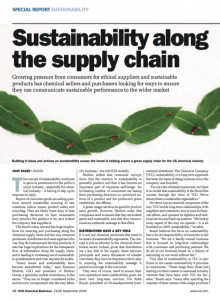
The trend is a key one and has huge implica- tions for sourcing and purchasing along the chemical supply chain and the way chemical producers, distributors and users approach the way they do business and develop products. It also has huge implications for the transparent ow of information along the supply chain, and is leading to increasing use of sustainabili- ty questionnaires and even requests for audits.
“Green issues and sustainability have become mainstream today,” says Suzanne Shelton, CEO and president of Shelton Group, a specialist market consultancy in the sector. “They are no longer considered niche and are now incorporated into the very fabric of a business,” she told ICIS recently.
Shelton added that consumer surveys show that the reaction to sustainability is generally positive and that it has become an important part of corporate self-image. An increasing number of consumers are basing their purchasing decisions on perceived notions of a product and the producer’s green credentials, she affirms. A green image can thus be good for product sales growth. However, Shelton notes that companies need to ensure that they are indeed green and sustainable, and that they communicate an authentic message to this effect.
DISTRIBUTORS HAVE A KEY ROLE
It is not just chemical producers that need to be aware of sustainability arguments. The concept is just as relevant in the chemical distribution sector. Indeed, given that distributors are a key link in the supply chain between principals and many thousands of smaller customers, they have an important role to play in ensuring the sustainability message is passed on through to the consumer. They also, of course, need to ensure their own operations meet sustainability goals, for their own long-term survival.
For Robb Roach, president of US-headquartered international distributor The Chemical Company (TCC), sustainability or a long-term approach has been the basis of doing business since the company was founded.
“I’m not a fan of trendy buzzwords, but there is no doubt that sustainability is the blood that courses through the veins of TCC. We’ve always been a sustainable organization.”
He views it as an essential component of the way TCC builds long-term relationships with suppliers and customers, how it runs its financial affairs, and operates its logistics and technical service and back-up systems. “We look at every aspect of the way we operate – it is all founded on 100% sustainability,” he adds.
Roach believes the focus on sustainability has to be the responsibility of everyone in the business. “We are a family-owned business that is focused on long-term relationships with customers and producing partners. We do all of our business based on a history of delivering on our word without fail.”
This idea of sustainability at TCC is also found in the career sustainability it provides its employees. “These range from those just starting out their careers to seasoned industry veterans that have been with TCC for decades,” Roach says, “many after spending the majority of their careers with a large producer or deciding to forgo retirement and continue a career with us.” The company prides itself on building a diverse team to build and learn from each other. This allows it to offer better service to customers and build a positive environment in which employees can choose to further develop them- selves and dedicate their careers to TCC.
“We really like to emphasize that sustainability in the supply chain ranges from the products to the long-term work force support- ing the industry’s success,” says Roach.
The chemical industry’s drive to greater sustainability does indeed involve actions across a broad front – from adoption of alternative and renewable feedstocks and ingredients to reduced energy and water usage and hence lower carbon footprint. Smarter logistics, increased recyclability and recycling, and safer and better working conditions also play a role.
GLOBAL INITIATIVES
The good news is that the industry is respond- ing to the sustainability agenda, spurred on not just by growing consumer demands but by global initiatives such as the UN’s Sustain- able Development Goals (SDGs) for 2030, agreed late last year, and the EU’s comprehensive Circular Economy Package, which seeks to address issues surrounding waste by promoting resource efficiency and recycling.
The chemical industry views its long-term espousal of the voluntary Responsible Care initiative as a key part of its response to sustainability, focused as it is on continuous improvement of health, safety and environ- mental, and now security, performance. But there is a realization that the industry has to go further and meet the ambitions of the United Nation’s Global Compact and the Global Product Strategy under the umbrella of the United Nations Environment Program (UNEP). One recent development that is gaining traction is a consortium of chemical producers and suppliers that has come together to assess and improve sustainability performance along the supply chain.
RUNNING ON A COMMON PLATFORM
Together for Sustainability (TfS) aims to drive improvements in supply chain sustainability and currently brings together 19 players in the chemical sector. These have agreed to adopt a harmonized set of assessment and audit processes, running on a common platform “to achieve significant, measurable CSR [corporate social responsibility] performance improvements in our supply chains” and “to move towards sustainable sourcing”.
TfS was launched in 2011 by the chief procurement officers of six multinational chemical companies: Bayer, BASF, Henkel, Evonik, Lanxess and Solvay. Today, its members have an annual spend of €200bn and have so far assessed 4,500 suppliers. It notes that 70% of these suppliers have improved their sustain- ability scores after evaluation.
The strategy is to develop and implement a global supplier engagement program to assess and improve sustainability practices within the supply chain of companies from the chemical sector. The program covers the areas of management, environment, health and safety, labour and human rights, ethics and governance.
TfS uses EcoVadis to carry out sustainability audits. Since 2011, 460 have been per- formed. Re-assessments have been conducted in Europe, Asia and the US and improvement has been recognized in all regions, says TfS.
“More than 70% of the suppliers that are assessed more than once by EcoVadis improve overall, showing a positive evolution in either one or more than one of the CSR themes considered (environment, labour practices, fair business practices and sustain- able procurement). This illustrates the potential of TfS to drive supply chain sustainability in the chemical industry.”
Although TfS members originate from the chemical business, suppliers in scope are not limited to chemical supply chains, but cover all industries relevant to the chemical indus- try, including wholesalers and logistics service providers.
Two-thirds of the assessed suppliers are small and medium-sized companies, which often scored better than large-scale enterprises. While the supply base is covered across all categories, it is at the same time covered glob- ally – TfS aims to assess and audit suppliers in all regions.
Recognizing the growing importance of sustainability as an issue overall and the develop- ing trend towards assessments, TCC decided last year to join the National Association of Chemical Distributors (NACD) to access the benefits of accreditation through its well-regard- ed Responsible Distribution (RD) program.
Ray Altenburger, vice president for new business at TCC, comments that the third- party audit of its facilities and their policies and procedures was another step in TCC’s progression to become more professional and meet the requirement of its partners. “Today, suppliers want greater trace- ability, for instance, and [having RD accreditation] we have a high- er level of comfort when doing business.”
Robb Roach echoes this, noting that levels of reporting up and down the supply chain have increased substantially in recent years as sustainability has risen up the agenda.
“Transparency is a key aspect of the business right now and most producers and customers are aware of the importance [of sustainability] in the world and are leading the charge – we are champions in many ways.”
Internally at TCC, Roach points to many initiatives, from using fuel-efficient vehicles for sales people, encouraging effective travel planning and ensuring the trucks it uses meet all standards and regulations, right down to installing a water fountain in the head office to cut down on bottled water consumption.
“Today, suppliers want greater traceability… [to] have a higher level of comfort when doing business”
RAY ALTENBURGER
Vice president for new business, The Chemical Company
“We have also made a huge effort to be fully compliant on labelling and documentation and a large investment in EHS, and make every effort to support growing companies especially in hard-pressed economies,” adds Roach.
Altenburger also points to the fact that TCC has been handling recycled, green and biobased chemicals for many years from sev- eral of its suppliers. He believes this trend will continue to grow as customers look for sustainable options and solutions.
As Roach concludes, “The key thing is that sustainability is not a new thing for TCC – it’s just the natural thing to do.”
That’s hard to argue against of course. Virtu- ally all chemical and chemical distribution companies these days will have an eye on the sustainability argument and trends. What is shifting fundamentally now perhaps is the focus on individual company performance as in the past, to supply chain performance today.
This is going to take a lot of cooperation and communication, but in the end, those companies that get involved will secure those customers that all players in the chain need to thrive – those at the end of the value chain. And the ones, as we saw at the top of this article, that are increasingly basing purchasing decisions on their perceptions of the prod- ucts’ and producers’ green credentials.


